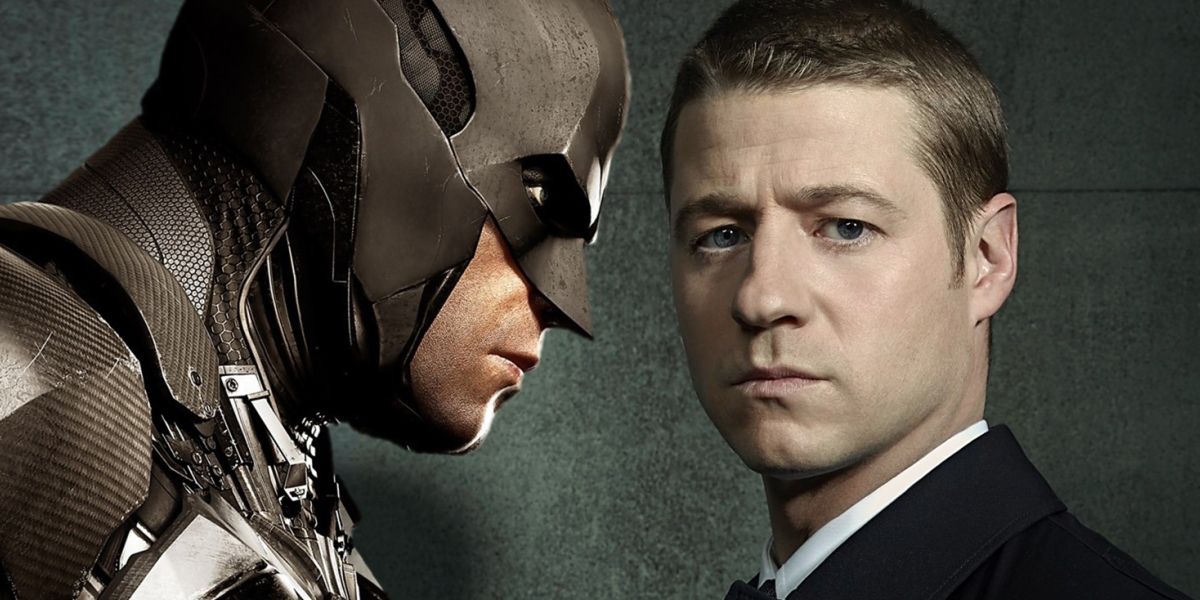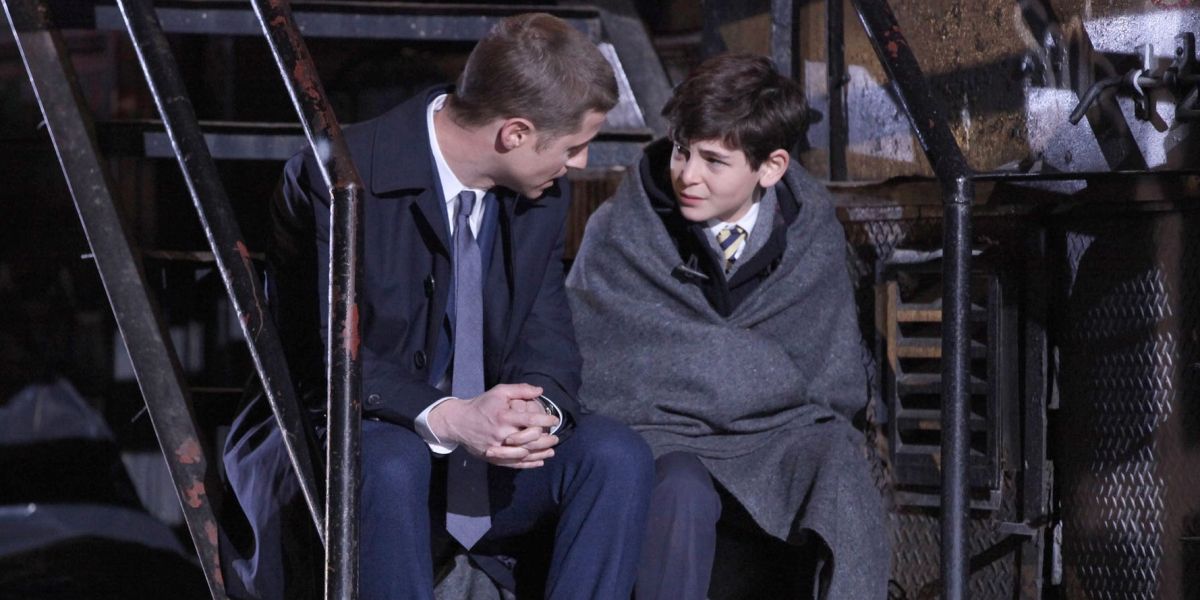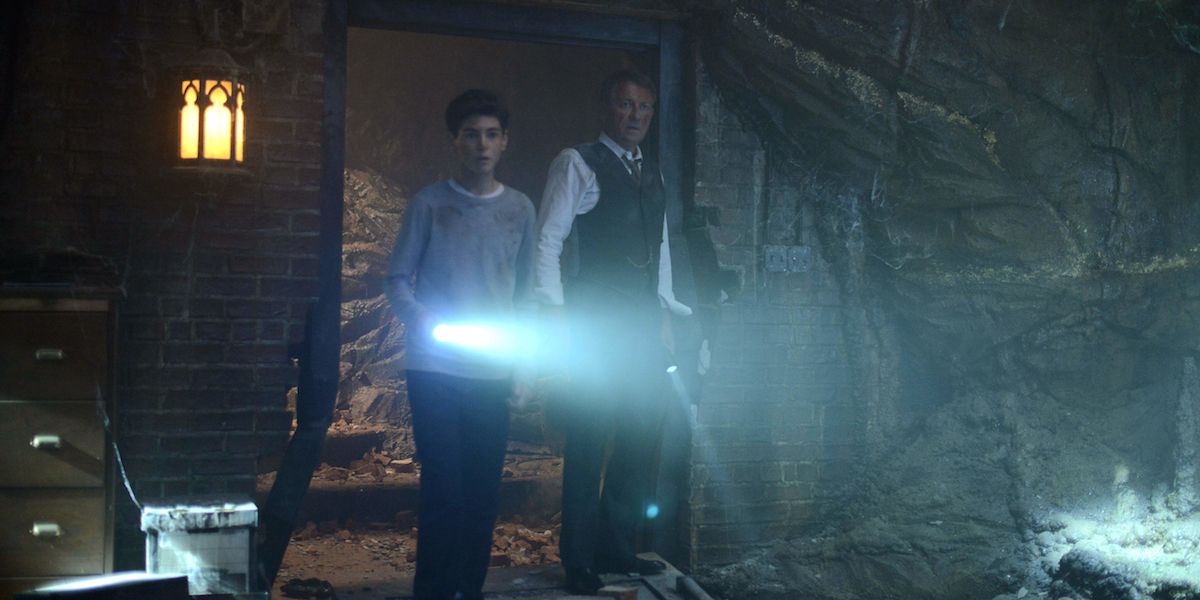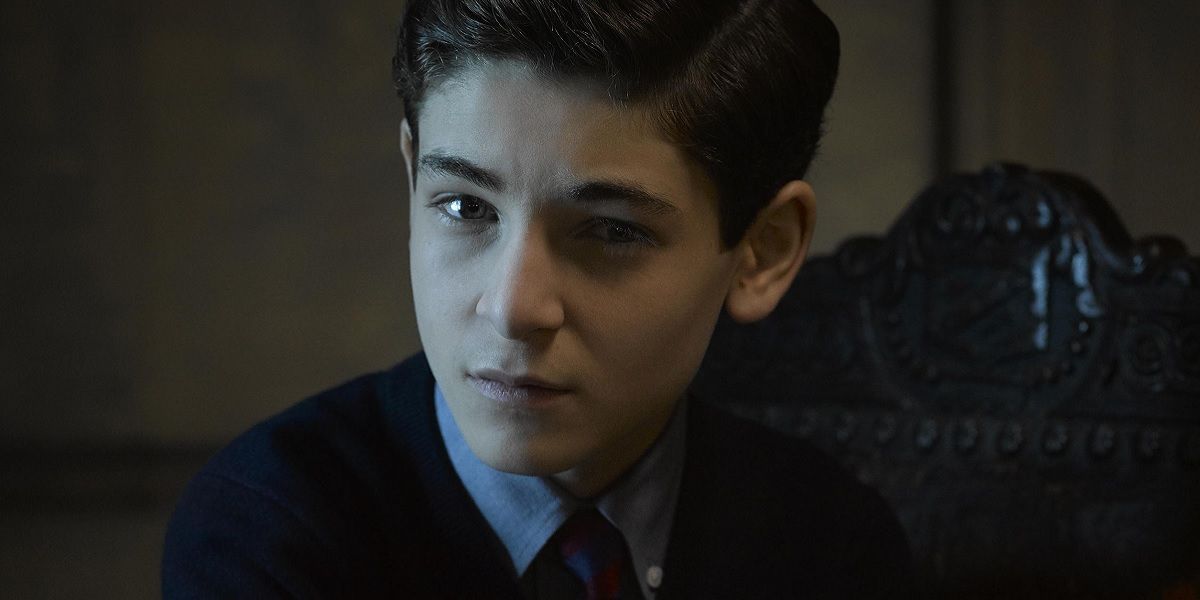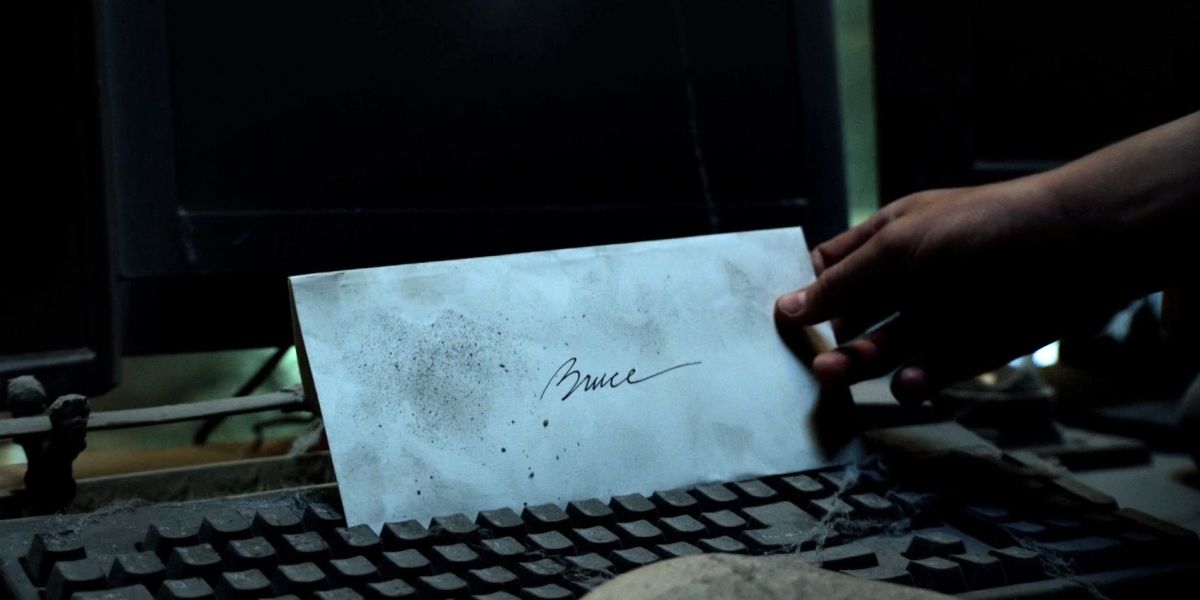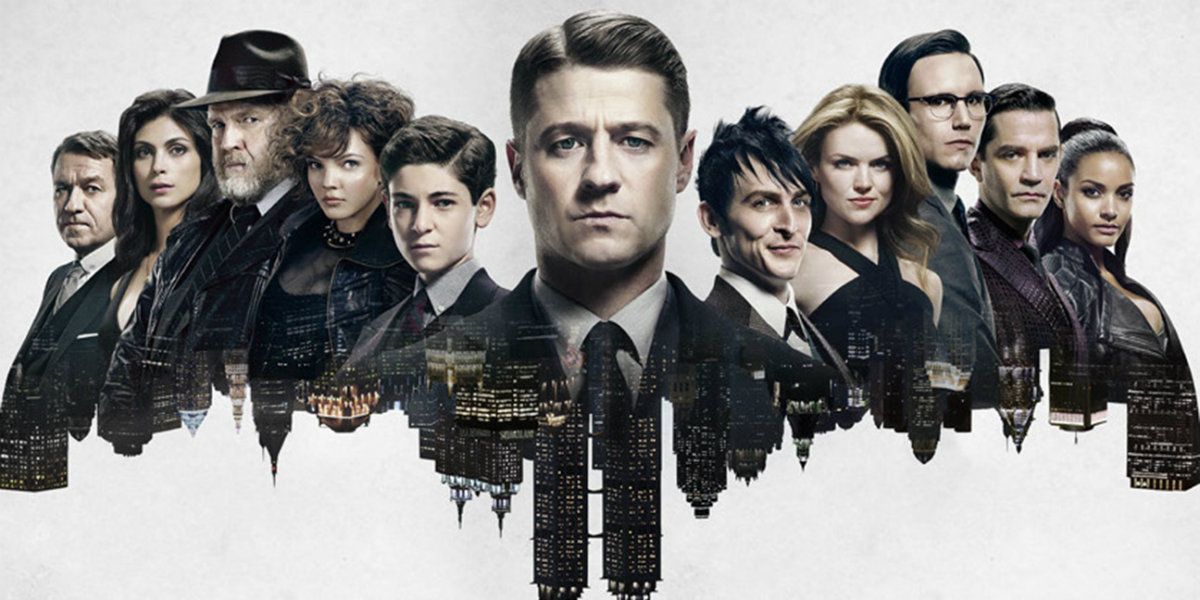By now, every comic book fan can agree that Gotham isn't quite the TV show that most assumed it would be when it was first announced. That isn't reason to condemn FOX or showrunner Bruno Heller, even if the original pitch of the series - "what if Jim Gordon investigated the murder of Thomas and Martha Wayne?" - implies a story, structure and overall thrust that the actual show has strayed from, in favor of telling a host of villain origin stories from week to week.
In truth, the talents of young actor David Mazouz meant that a bigger role for Bruce Wayne was more promising than the producers could have ever planned. Fans have criticized Gotham's treatment of origins of iconic villains since the start (that they're introduced too soon, without nuance, or through ham-fisted plot contrivances), but as far as we're concerned, the writers' treatment of Bruce Wayne has crossed even more problematic lines.
Even if writers implied that Jim Gordon, not Bruce Wayne would be the star and draw of the series, the appeal of a Batman origin story has, unsurprisingly, proven too strong for the writers to resist. But what Heller described as "adding" to the origin story of DC's dark knight has, like many other elements of the show's fiction, run wild. Gotham may be a story of how Gotham City came to be, but a fundamental mishandling of the original themes and substance means the DNA of the Batman mythology is nowhere to be found.
That may sound like an exaggeration, but our concerns have traced back to the show's first episodes. Not because the changes, tweaks, or "additions" to Batman's mythology were hard to understand; they were all made to fulfill the purposes of a serialized, weekly TV show. And since most mainstream movie fans know Bruce Wayne's origin story through and through, a small tweak was needed to get their attention (and convince them this wasn't just another retelling).
The answer? The introduction of Jim Gordon into Bruce's life years before they would join forces as Batman and Police Commissioner. But before long, the air of mystery and suspicion around the death of Thomas and Martha Wayne became too strong for the writers to resist (or too easy a well to draw from). What if the murder of Bruce's parents wasn't random at all? What if it was a planned attack, orchestrated by organized (or possibly even corporate) criminals, as a punishment for the Waynes tangling with forces they hadn't anticipated - or those willing to do whatever it took to keep their stranglehold on Gotham?
We would ask that the diehard DC Comics fans resist pulling their hair out already, since the journey Bruce took in his own investigation wasn't exactly subtle. Thankfully, Bruce's shift from somber grief into angry journalling and death metal was short-lived, and he soon found himself on the path to becoming a vigilante and detective. The driving force: to solve the very same mystery Gordon was pursuing, and understand just why his parents had been killed, and who was actually responsible.
Bruce's investigation proceeded well compared to Jim Gordon's (although the emergence of most of Batman's future villains demanded the detective's attention), leading him to suspect that his parents' murder may have originated from within his father's own company. The first season ended with a cliffhanger that divided fans more powerfully than ever before: Bruce's discovery of a secret lair beneath Wayne Manor belonging to his father.
For those less versed in DC Comics mythology, it's safe to say that the storyline summarized above is a complete departure from the traditional Bruce Wayne fiction. The more casual fans are likely to claim that criticizing the differences is "nitpicking," or another case of "fanboys" holding source material too sacred. That's usually a fair opinion: in today's world, the age, details, or even ethnicity of comic book heroes have proven less important than keeping the spirit of the character intact.
But the differences that Heller and co. have introduced - through story beats and plot twists that are as paint-by-numbers and formulaic as a corporate espionage mystery can possibly get - haven't just dismissed the details of Bruce Wayne's story altogether, but the themes, motivations, and tragedy that make up the entire Batman universe. And with the Season 2 premiere, they proved Gotham shouldn't masquerade as "a Batman story" any longer.
Next Page: How Season 2 Has Gone Too Far
-
[WARNING: SPOILERS for Gotham's Season 2 premiere lie ahead.]
Almost all of DC's biggest heroes can be summarized in a single sentiment or archetype. Superman is a godlike hero, but the consummate outsider. Wonder Woman was a princess born outside of man's world. And Batman lost his parents to random street crime (a fact maintained in most canon versions of the story), and dedicated his life to preventing anyone else from the same fate. The murder being a "random" act of violence is important: the criminal wasn't the villain - the evil lay in the circumstances and complacency of a city that had created him.
Apparently, Heller and his writers judged that concept a little too ambitious, or possibly too complicated, for TV audiences to stick with. As the show progressed, Bruce Wayne's significance and importance to the overall Gotham story grew, but fans who valued the themes of anger, loss, and revenge that made Batman such an icon to begin with witnessed these ideas dropped by the wayside in favor of a 'boy detective.'
Even when comic writer Scott Snyder used DC's New 52 relaunch to introduce the Court of Owls, a centuries-old society operating in Gotham's shadows, he made sure Bruce couldn't find any evidence that they were behind his parents' deaths (having gone on record as not wishing to change the Waynes' death at all). Still, it was an acclaimed arc that played on Batman's assumed mastery of Gotham's underworld.... despite that, Heller has already confirmed that the Court will appear in Gotham, since shrouded organizations are the show's bread and butter.
But with Gotham's Season 2 premiere, the series crossed a line which may prove to be its undoing - at least where its vision of the Dark Knight is concerned.
Thomas Wayne is no longer one of Gotham's brightest stars, whose murder showed that crime can scar anyone, anywhere. Fine. Bruce decides his parents' death is no accident, but the result of a massive conspiracy. Fine. So Bruce decides almost immediately to devote his life to training as a vigilante. So be it. But the premiere episode saw Bruce blow his way into his father's secret totally-not-a-Batcave, where he found not just more evidence for his investigation - but a letter with his name on it.
We'll spare you the details, but in short, Thomas Wayne took the chance to tell Bruce that not only was he aware of suspicious forces closing in on him before his death, but that becoming a father forced him to investigate the darker corners of his own company, out of a moral and ethical obligation. His only advice: that Bruce would be better off ignoring the pursuit of truth, and living a happy life: "...unless...unless you feel a calling...a true calling."
Amidst an award-winning dose of parental manipulation (albeit well-meaning), Thomas Wayne didn't just explain that his investigation into Gotham's darker side would potentially get him killed, but that Bruce should - if he was truly his father's son - take up this mission for himself.
And with a single scene, Gotham's writers turned Bruce Wayne's descent into Batman from a tragic story of obsession and anger into a heroic crusade, with a son taking up his father's quest for justice and truth.
Again, that's a story that is above all easy to tell, which is why a son taking up his father's mission is found in every other fantasy adventure, from Star Wars all the way up to Superman. But where Heller and co.'s willingness to twist, rewrite, or ignore the origins and motives of Batman's villains (many of whose origins are unclear at best) could be entertained in the name of window dressing, this shot at the foundations of what makes Batman... well, Batman can't be understated.
The comic stalwarts can argue that changing Bruce Wayne's story in these ways would be akin to a Superman TV series that cast the Kents as unloving parents - or revealed Jor-El sent his son to Earth to rule over humanity. We're not making the case that every aspect of a fictional icon- comic hero or no - should be etched in stone, but surely some basic points have to be followed, especially if they will, and always have, composed the entire reason for the character's existence.
The writers of Gotham were able to include Bruce in their story since he wouldn't adopt his cape and cowl until adulthood. Until now, they've titillated viewers with tease upon tease of the identity he will one day embrace, as the surrounding fiction was modified to fit the requirements of a Batman TV show that can't actually include Batman. But by extending that same approach to Bruce Wayne, the writers have lost more than they gained.
Whether Bruce's plot is an entertaining one to watch unfold, the fact remains: the man this Bruce Wayne will grow up to be isn't the one DC fans have known, in any way that truly matters.
That may be a fact that some viewers have already come to accept, after seeing the hints of a massive conspiracy and a secret side of Thomas Wayne's life. But now that Gotham has showed its hand (as far as Bruce's quest for justice is concerned), its departure from comic canon is clear. Batman won't appear in the TV series, because the motivations and decisions that led Bruce to trade his life for darkness have been completely rewritten.
What that means for audiences simply enjoying the crazed, manic characters is that the show will go on. But it also means FOX and Heller's insistence that they are honoring or even understanding the core of Bruce Wayne's character should stop. And those comic fans who were tuning in to see an inspired, elegant, or even faithful look at Bruce Wayne's adolescent transformation into Batman can stop watching altogether.
It turns out the writers were telling the truth this entire time: this wasn't a Batman origin story at all.
Gotham returns with ‘Knock, Knock’ next Monday @8pm on FOX.

